
A Complete Guide to Every GCSE Exam Board
The GCSE (General Certificate of Secondary Education) system in the UK is overseen by various exam boards. Each of these boards designs its own syllabuses, assessments, and grading criteria while ensuring qualifications meet consistent national standards. Understanding the differences between these exam boards can help students, parents, and educators make informed decisions and prepare more effectively.
This guide will explore the five main GCSE exam boards in depth, followed by a comprehensive FAQ section to address common queries.
Need personalised guidance on GCSEs? Find expert support with Ivy Education
Need Further GCSE Support?
What Are GCSE Exam Boards?
The main exam boards in the UK are:
- AQA (Assessment and Qualifications Alliance)
- OCR (Oxford, Cambridge and RSA Examinations)
- Edexcel (Pearson Edexcel)
- WJEC (Welsh Joint Education Committee)
- CCEA (Council for the Curriculum, Examinations and Assessment)
2.0 Top
Key Differences at a Glance
| AQA | OCR | Edexcel | WJEC | CCEA | |
|---|---|---|---|---|---|
| Coverage | England, Wales | England, Wales | Global | Wales, England | Northern Ireland |
| Popular Subjects | English, Science | Computer Science | Business, Maths | Welsh, Drama | Irish, History |
| Assessment Style | Exams, Practical | Exams, Coursework | Exams, Modular | Exams, Coursework | Exams, Coursework |
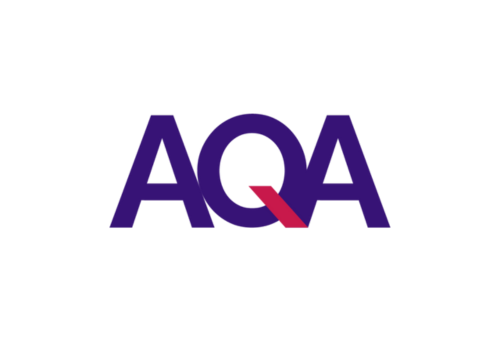
AQA (Assessment and Qualifications Alliance)
AQA is one of the largest and most popular exam boards in England and Wales. It offers an extensive range of subjects, with syllabuses designed to be clear and accessible for students of all abilities.
AQA places a strong emphasis on the practical application of knowledge. This is particularly evident in subjects like science, where practical work is integrated into the curriculum, and assessments test students’ ability to apply scientific principles.
Subject Comparisons to Other Exam Boards
English Language and Literature
AQA’s English courses place strong emphasis on analytical and evaluative skills. In English Language, students are encouraged to engage critically with both unseen texts and creative writing tasks. English Literature focuses on a wide range of classic and modern works, with a balance of prose, poetry, and drama. Compared to other boards, AQA’s assessments often include more opportunities for creative interpretation, such as comparative essays.
Mathematics
AQA’s Maths syllabus is similar to other boards but is known for its straightforward presentation. It includes a focus on problem-solving and application of mathematical concepts to real-world contexts. Students are assessed on topics ranging from algebra to probability, with question styles that often require logical thinking rather than rote memorisation.
Sciences (Combined and Separate)
AQA offers both Combined Science (worth two GCSEs) and Separate Sciences (Biology, Chemistry, and Physics). AQA’s science courses are notable for their integration of practical skills into written exams, rather than separate coursework. Students complete required practical activities during the course, and their understanding of these experiments is tested in exam questions.
Geography
Geography with AQA balances human and physical geography. Case studies cover global issues like climate change, urbanisation, and resource management. AQA’s assessments include fieldwork-based questions, encouraging students to apply real-world observations to theoretical concepts.
History
AQA’s History syllabus spans multiple time periods, from medieval to modern. Students can study topics such as Elizabethan England, the Cold War, and the development of democracy in Britain. AQA’s approach often provides more thematic options compared to other boards, allowing schools to tailor content to their strengths.
Key Features of AQA
AQA is renowned for its detailed specifications that provide clear guidance on what students need to learn. Teachers benefit from an extensive range of support materials, including past papers, example answers, and mark schemes. AQA also frequently updates its resources to reflect changes in teaching methods and technology, making it a forward-thinking choice.
AQA Assessment Style
Most assessments are written exams, but some subjects include practical elements or controlled assessments, such as in art or practical sciences. AQA aims to strike a balance between theoretical understanding and real-world application.
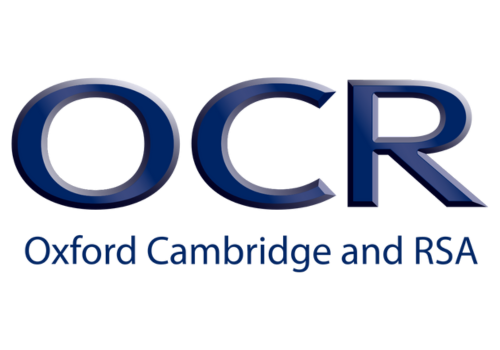
OCR (Oxford, Cambridge and RSA Examinations)
OCR is part of the Cambridge Assessment Group, which has a long history of providing high-quality educational qualifications. OCR is known for offering a wide range of subjects and catering to different teaching and learning styles.
Subject Comparisons to Other Exam Boards
Computer Science
OCR is a leader in modernising Computer Science education. Its syllabus includes programming, algorithms, and cyber security. Practical programming projects are emphasised, allowing students to develop real-world skills. OCR’s focus on coding as a foundational skill often makes it the most hands-on Computer Science course among the boards.
Sciences (Gateway and 21st Century Science)
OCR offers two pathways for Science: Gateway Science and 21st Century Science. Gateway focuses on traditional scientific principles, while 21st Century Science takes a more contemporary approach, discussing current scientific developments. Both pathways integrate practical skills into theoretical assessments but cater to slightly different teaching styles.
History
OCR’s History course includes a strong emphasis on local history alongside broader topics. For example, students might study the history of their local area alongside global events such as the Cold War or Nazi Germany. This makes the syllabus more adaptable for schools wishing to incorporate regional history.
Religious Studies
OCR provides a well-rounded Religious Studies course that encourages students to explore philosophical, ethical, and religious perspectives. Unlike other boards, OCR places particular emphasis on the philosophical and ethical dimensions of religion, making it an appealing choice for students interested in debating and analysing moral issues.
Key Features of OCR
OCR offers unique pathways in science, such as the Gateway and 21st Century Science courses, allowing schools to choose the approach that best suits their students. The board has gained a reputation for innovation, particularly in modern subjects like Computer Science, which includes programming tasks and practical coding challenges. OCR provides comprehensive teacher support, including detailed specifications, teaching guides, and training opportunities. This makes it easier for schools to implement the curriculum effectively.
OCR Assessment Style
OCR’s assessments are predominantly exam-based, but some subjects include coursework or practical components. For example, Computer Science requires students to complete programming tasks that test their coding skills.
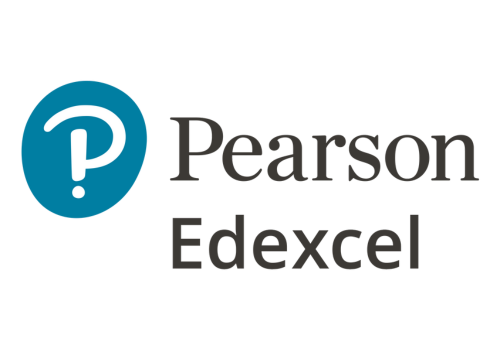
Edexcel (Pearson Edexcel)
Edexcel, part of Pearson, is a globally recognised exam board offering both traditional GCSEs and International GCSEs (IGCSEs). It is particularly popular with international schools and students seeking rigorous qualifications.
Subject Comparisons to Other Exam Boards
Mathematics
Edexcel’s Maths syllabus is comprehensive and rigorous. Its higher-tier exams are known for their challenging problem-solving tasks, which require advanced reasoning skills. The international IGCSE Maths course offers additional flexibility and optional coursework.
Business Studies
Edexcel’s Business Studies course covers core topics like entrepreneurship, marketing, and finance. Case studies often involve real-world examples, encouraging students to apply theoretical knowledge in practical contexts. This makes the syllabus particularly engaging.
Economics
Economics with Edexcel strikes a balance between microeconomics and macroeconomics. Students explore topics such as market structures, government policies, and international trade. The course’s emphasis on data analysis sets it apart from other boards.
Modern Foreign Languages
Edexcel’s language courses focus on practical communication, assessing listening, reading, speaking, and writing skills. Tasks often involve real-world scenarios, such as giving directions or ordering food, making the course highly applicable.
Sciences
Edexcel offers both GCSE and IGCSE options in sciences, with the latter focusing on global case studies. The content includes cutting-edge topics like genetics and renewable energy, making it relevant for modern learners.
Key Features of Edexcel
Edexcel is known for its global accessibility and digital innovation. It provides interactive resources for teachers and students, including online tools for revision and assessment. The IGCSE qualifications are widely recognised and highly regarded internationally, making Edexcel a strong choice for schools outside the UK.
Edexcel Assessment Style
Edexcel’s assessments vary by subject, with both modular and linear formats available. Exams frequently include questions requiring critical thinking and data interpretation, particularly in Economics and Business Studies.
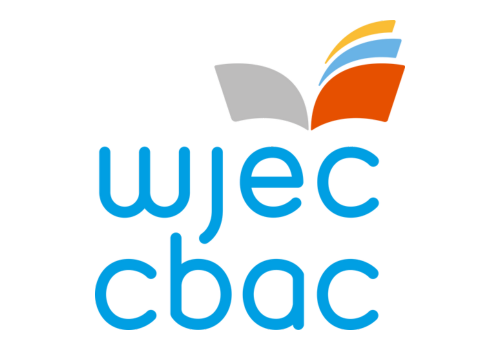
WJEC (Welsh Joint Education Committee)
WJEC is the primary exam board for schools in Wales but also serves some schools in England. It is unique in offering bilingual exams and qualifications tailored to the Welsh curriculum.
Subject Comparisons to Other Exam Boards
Welsh (First or Second Language)
WJEC offers comprehensive Welsh Language courses, covering grammar, literature, and oral skills. These courses are designed to preserve and promote Welsh culture, with separate tracks for first and second-language learners.
Drama
Drama with WJEC focuses heavily on practical performance skills. Students devise and perform their own pieces, while also evaluating professional productions. This hands-on approach makes it ideal for creative learners.
Music
WJEC’s Music syllabus balances composition, performance, and theory. A unique feature is the inclusion of Welsh composers and traditional music, fostering cultural appreciation.
Geography
Geography with WJEC includes global topics like climate change and resource management, alongside local case studies on Welsh landscapes. Fieldwork is central to the course, helping students apply theoretical knowledge to real-world observations.
Key Features of WJEC
WJEC stands out for its bilingual options, supporting both English and Welsh-speaking students. It is particularly strong in creative and cultural subjects like Music and Drama, where the curriculum often incorporates Welsh heritage. WJEC also provides robust teacher support through detailed specifications and training.
WJEC Assessment Style
WJEC uses a combination of written exams and coursework. Creative and practical subjects, like Drama and Music, place significant emphasis on controlled assessments, while academic subjects focus more on exams.
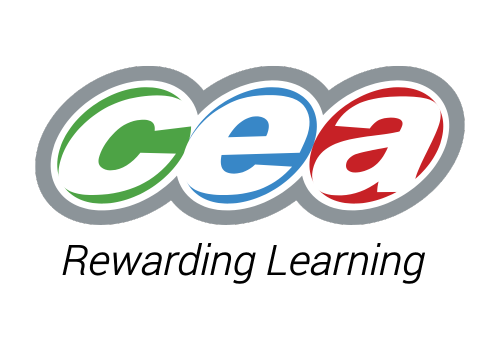
CCEA (Council for the Curriculum, Examinations and Assessment)
CCEA is the main exam board for Northern Ireland and is uniquely tailored to the region’s educational requirements. It plays a vital role in reflecting and preserving Northern Ireland’s cultural and linguistic heritage through its qualifications. Unlike other boards, CCEA incorporates a strong emphasis on Irish language and culture, making it stand out as a distinctive choice for schools in the region.
Subject Comparisons to Other Exam Boards
Irish Language
CCEA offers an in-depth Irish Language course, covering grammar, literature, and oral communication skills. This qualification is designed to support both Irish-medium schools and students interested in preserving the region’s linguistic heritage. Students engage with traditional and modern Irish literature, and oral assessments focus on conversational fluency and cultural topics. This subject is unique to CCEA and serves as a cornerstone of its commitment to promoting bilingual education in Northern Ireland.
History
History with CCEA includes a regional focus that explores the history of Northern Ireland in depth, particularly key events such as the Troubles and the subsequent peace process. Alongside these local studies, the syllabus incorporates global topics like World War II and the Cold War. The board’s approach ensures that students gain a comprehensive understanding of both local and international history, with the regional focus adding a personal and cultural dimension.
Religious Studies
Religious Studies from CCEA reflects Northern Ireland’s religious diversity, offering a balance between Christian teachings and broader ethical, moral, and philosophical issues. Students examine how religious beliefs have shaped the history and culture of Northern Ireland, alongside exploring the role of other world religions.
Sciences
CCEA’s Science courses follow the same practical and theoretical format as other boards but often include examples and case studies relevant to Northern Ireland. For instance, environmental studies might explore local ecosystems, and technological developments in the curriculum are linked to Northern Ireland’s industrial heritage.
Key Features of CCEA
What sets CCEA apart from other exam boards is its dedication to embedding Irish cultural and linguistic elements into its qualifications. For example, its Irish Language offerings go beyond standard language learning to include literary analysis, cultural studies, and fluency in a conversational context. Additionally, its History syllabus is uniquely positioned to provide students with a deeper understanding of Northern Ireland’s political and social landscape, making the curriculum particularly relevant and meaningful for local students.
CCEA also supports Irish-medium schools by offering bilingual teaching and assessment materials. This commitment to promoting the Irish language and culture ensures that students from these schools can achieve their qualifications while maintaining their linguistic heritage.
CCEA Assessment Style
CCEA’s assessments combine written exams with coursework or practical elements, depending on the subject. Its Irish Language exams include a strong oral component, designed to test conversational fluency and cultural awareness, which is distinct from similar qualifications offered by other boards. Additionally, CCEA integrates local examples and case studies into subjects like Geography and Science, ensuring the content feels relevant and relatable to students in Northern Ireland.

Conclusion
Choosing the right GCSE exam board can significantly influence a student's learning experience, but it's worth remembering that all boards adhere to the same national standards, ensuring consistency in the qualifications awarded. Whether you're studying under AQA's practical approach, OCR's innovative pathways, Edexcel's international reach, WJEC's bilingual offerings, or CCEA's strong focus on Irish culture, understanding your exam board's strengths can help you excel.
For those seeking additional guidance, Ivy Education offers expert GCSE tuition tailored to the requirements of each exam board. Our experienced tutors provide personalised support, ensuring that students are fully prepared for their specific syllabus and assessment style. With our help, you can navigate the complexities of GCSEs with confidence and achieve your best possible results.
If you'd like to learn more or book a discussion with our Family Education Manager, feel free to contact Ivy Education. Our team is here to help you succeed!
9.0 Top
FAQs
All exam boards align with the national curriculum set by the Department for Education, but their specifications, topics, and assessments can vary. This means the way a subject is taught and examined may differ slightly across boards.
This depends on the subject and individual preferences. For example, Edexcel’s higher-tier Maths is known for its challenging problem-solving questions, while OCR’s Computer Science often involves more hands-on programming tasks.
Switching boards during a course is rare, as the specifications and topics covered often differ. However, for private candidates, registering with a different board is possible.
Yes, universities and employers view GCSEs from all boards equally. The differences lie in how the subjects are taught and assessed, not in their value or recognition.
Schools select exam boards based on factors like teacher familiarity, resource availability, and the suitability of the board’s specifications for their students.
Other Articles

The Ultimate Guide to GCSE Revision

How to Get All 9s in your GCSEs?
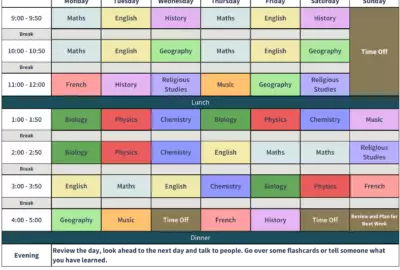
Free GCSE Revision Timetable Template

How Many GCSEs Do You Need To Take?

How to Revise for English Literature GCSE

GCSE Maths Exams Explained

How to Revise GCSE Maths

IGCSE vs GCSE: Differences You Should Know in 2026
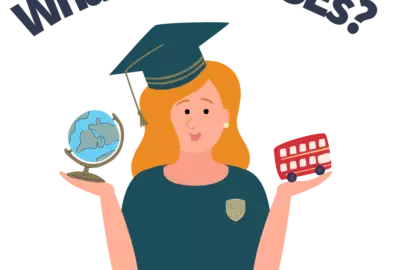
What are IGCSEs?
As featured in












